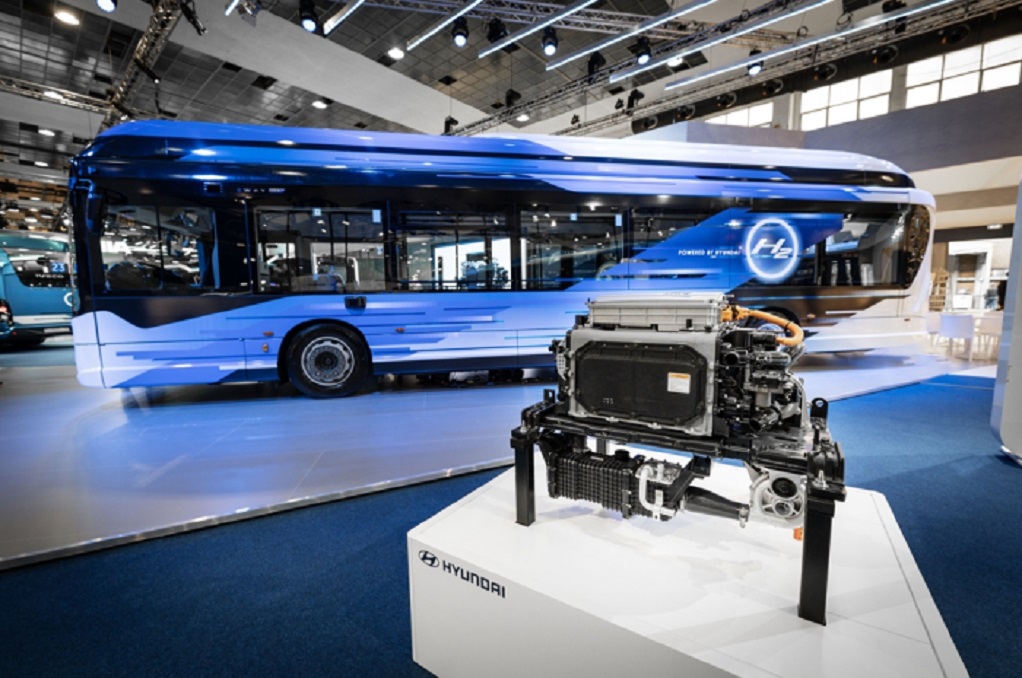South Korea’s top automaker Hyundai Motor Co. and Italian truck maker Iveco Group N.V. have consolidated their business partnership through the creation of a hydrogen fuel-cell electric vehicle (FCEV) E-WAY H2.
The two partners showcased their jointly developed hydrogen-powered city bus at Busworld Europe 2023, the world’s largest bus exposition opened in Brussels, Belgium.
The E-WAY H2 is an addition to Hyundai’s commercial FCEV lineup following the Elec City and the Universe.
The latest hydrogen commercial vehicle has an Iveco 310-kilowatt electric motor and Hyundai’s advanced HTWO fuel cell system.
Hyundai said that the 12-meter, low-floor city bus can travel up to 450 km on a single charge, suitable for urban and suburban routes.
Since signing a memorandum of understanding in March 2022, Hyundai and Iveco have formed joint working groups on commercial vehicle technologies to explore ways to complement each other in battery and fuel-cell electric vehicle development.
In September 2022, the two companies showcased a jointly developed hydrogen fuel cell van, the eDaily, at the Hannover IAA Commercial Vehicles exhibition in Germany.
The vehicle is equipped with a 140 kW electric motor developed by FPT Industrial under the Iveco Group, alongside a 90 kW hydrogen fuel cell system from Hyundai Motor.
The 7-ton van can be fully charged in 15 minutes. It runs up to 350 km on a single charge, carrying a maximum 3-ton payload.
Tags: E-Way, Hydrogen, Hyundai, IVECO



Recent Posts
FIMI and Deloitte Release Report on Cleaner Vehicle Adoption in Indian Mining Sector
NTPC Deploys Hydrogen Fuel Cell Buses in Leh, Marks India’s First Commercial Hydrogen Mobility Project
Provaris and K LINE Sign MOU to Advance Hydrogen Shipping Solutions
Mumbai Set to Launch Electric Hydrofoil Ferry Network with Candela P-12 Vessels
AVTL to Build Independent Ammonia Terminal at Pipavav Port
DNV Grants Approval in Principle for New Ammonia Bunkering Vessel Design
Proteus Launches Modular Hydrogen Fuel Cell System for Maritime Sector
Van Oord Unveils Boreas, World’s Largest and Most Sustainable Offshore Wind Installation Vessel